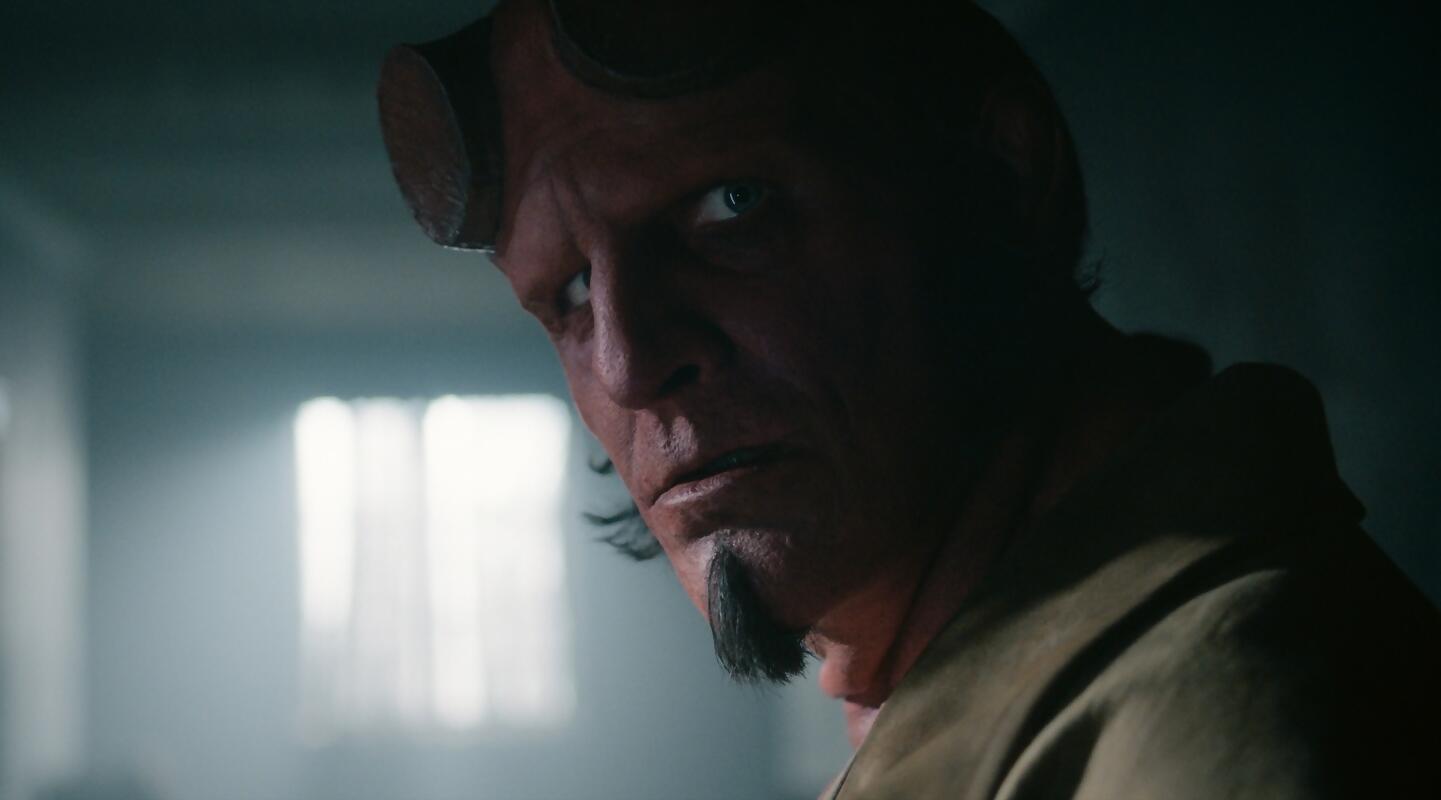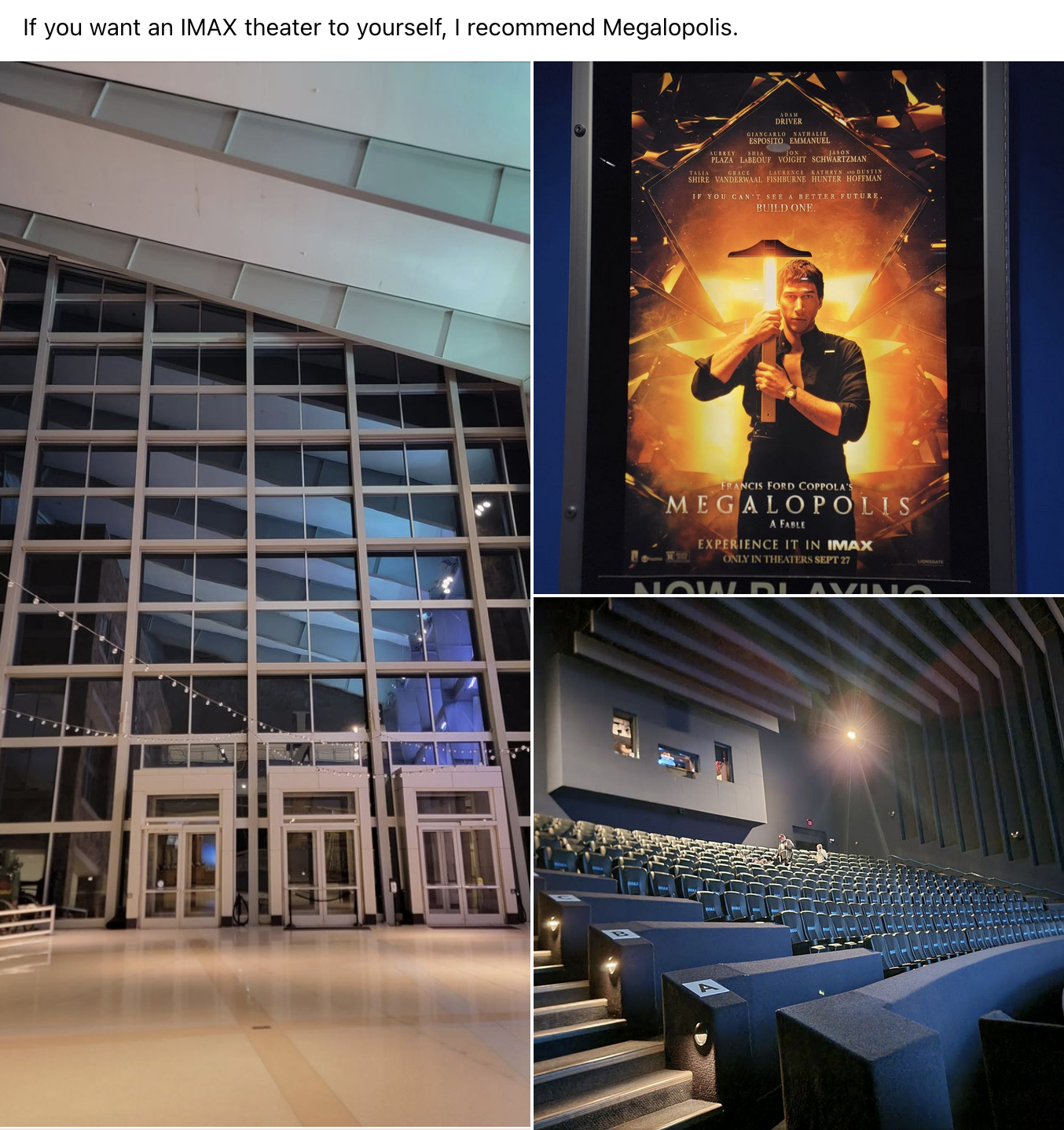Hellboy: The Crooked Man | How the dwindling of home media has affected a cult comic book franchise
by Ryan Lambie | October 1, 2024

Hellboy's back in cinemas with The Crooked Man, but its budget is drastically reduced from its 2000s heyday. A shrinking home video market may be the reason.
There was a crooked man who walked a crooked mile... presumably so he could share top billing in Hellboy: The Crooked Man, which snuck into UK cinemas on the 27th September.
For fans of the source comics, seeing the antihero back on the big screen after the disappointment of 2019's Hellboy reboot -- a film even its director Neil Marshall, publicly disowned -- will be at least some cause for celebration. But what's noteworthy about Hellboy: The Crooked Man (directed by Crank co-director Brian Taylor) is just how small-scale it looks compared to the visually sumptuous movies director Guillermo del Toro served up in the 2000s.
Where 2004's Hellboy served up a bold-looking take on the comic books, The Crooked Man is a contained story largely set in run-down chapels and shacks in Appalachia. Where 2008's Hellboy II: The Golden Army featured dozens of intricately-designed characters and action set-pieces, this year's movie offers up a smaller cast and a title villain who could have come from one of Blumhouse's low-budget horrors.
Although it's far from a bad film -- it's certainly less muddled than its 2019 predecessor -- its relatively low budget of $20m is often plain to see, from its muddy lighting to uneven digital effects. All of which might beg the question: what happened in the preceding 20 years? How did the movies go from budgets of $60-80m in the 2000s to less than a third of that in 2024? The likely answer doesn't necessarily come down to the popularity of Hellboy himself, but rather a changing filmmaking ecosystem.
It's worth pointing out that neither Hellboy nor its immediate sequel were huge hits. The 2004 original made roughly $100m worldwide on its $60m-ish budget; its sequel did better with worldwide take of about $168m, but then that film's budget also swelled to around $85m.
Back in the 2000s, however, profits in cinema only formed a part of a movie's lifecycle, and 2004's Hellboy was a big success on DVD. A two-disc special edition, released that July, reportedly sold about 500,000 copies; a three-disc director's cut was also released in the autumn of that year, and likely sold well in the run-up to Christmas.
It was that popularity on its home release that convinced Revolution Studios to go ahead with Hellboy II: The Golden Army, which followed a similar pattern: it more-or-less made a profit theatrically, but it was on disc that it made the most money. In fact, The Golden Army, despite its expanded budget, would have gotten a sequel itself were it not for outside forces acting against it. Guillermo del Toro expressed his interest in making Hellboy 3, a film that would have completed the trilogy with title star Ron Perlman, but he spent several years working on an adaptation of The Hobbit that, ultimately, would never happen.
By 2014, del Toro revealed that he'd tried to pitch Hellboy 3 to studios, but they'd all turned it down. The reason, he said in a Reddit AMA, was due to the collapse of the home video market in the years since The Golden Army came out.
"We have gone through basically every studio and asked for financing, and they are not interested," the filmmaker wrote that July. "I think that the first movie made its budget back, and a little bit of profit, but then it was very very big on video and DVD. The story repeated itself with the second already, it made its money back at the box office, but a small margin of profit in the release of the theatrical print, but was very very big on DVD and video. Sadly now from a business point of view all the studios know is that you don't have that safety net of the DVD and video, so they view the project as dangerous."
Del Toro estimated elsewhere that his concept for a third Hellboy would require a budget of $120m -- a sum studios were increasingly reluctant to stomach. When a new Hellboy finally emerged in 2019, directed by Neil Marshall and with David Harbour replacing Ron Perlman as its demonic antihero, it was made with a budget of $50m. Given how much inflation had risen since 2004, that sum was even tighter than it might initially sound.
Although intended as a reboot, the 2019 Hellboy wasn't quite the fresh start its studio might have hoped, with a troubled production and an ultimate box office take of about $55m. That the movie made about $12m on its home release in the US likely helped push its profits nearer to the black than the red, but it's still far below the franchise's high point in the 2000s.
All of which explain why, when Millennium Media decided to reboot Hellboy again with The Crooked Man, the budget was slashed again, this time to a reported $20m. Now featuring Jack Kesy as the gun-wielding, crimson lead, its R-rated action and backwoods horror tone will no doubt be familiar to readers of the source comics, but the downside is that it's far less cinematic in its presentation than what emerged from del Toro's baroque imagination some 20 years ago.
In the 2020s, movies still have other ways of making profits beyond their initial cinema releases, from premium video-on-demand to fancy 4K Blu-rays. The market for physical media has shrunk dramatically since 2005, however; an industry at its peak worth some $16bn in the US alone is now worth more like $2bn. It was once the case that you could see movies in most major retailers, and buy a DVD or Blu-ray on impulse. By now, many outlets -- including Best Buy in the US -- have stopped selling them entirely.
The market for physical media's still there, but its huge reduction has seen studios grow increasingly wary of where they invest their money -- and how much they spend. Just ask Hellboy.



